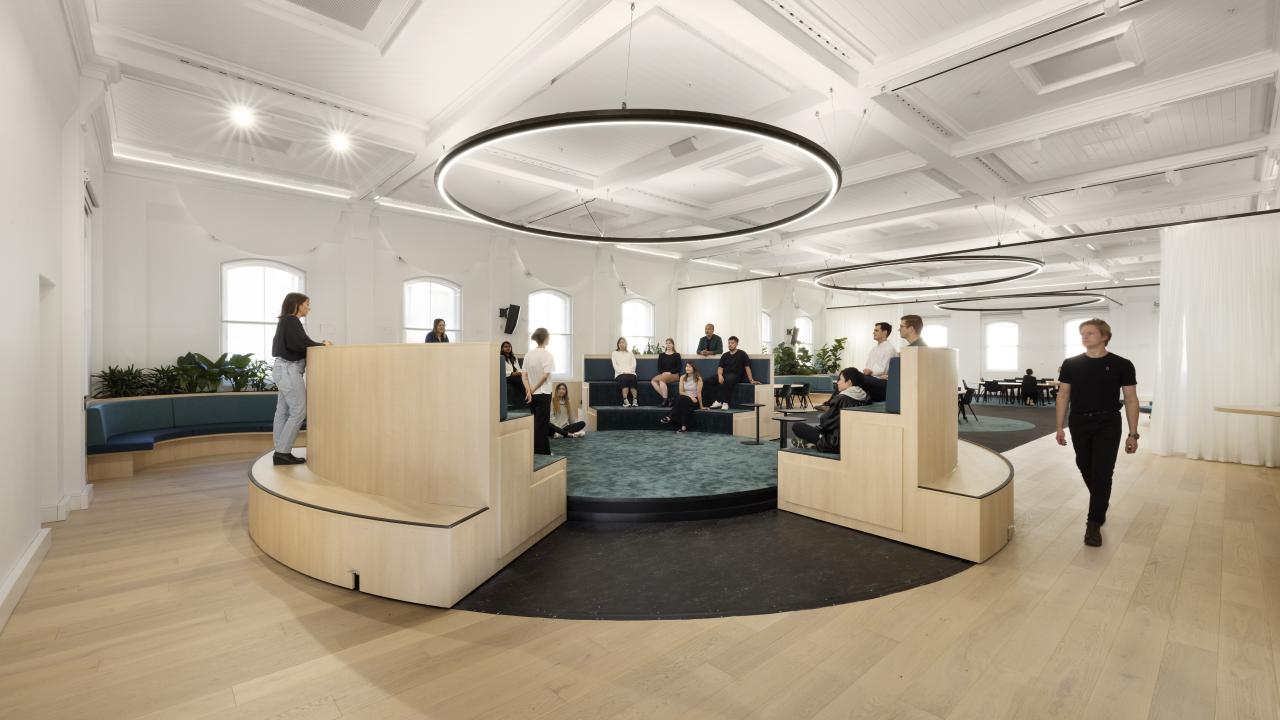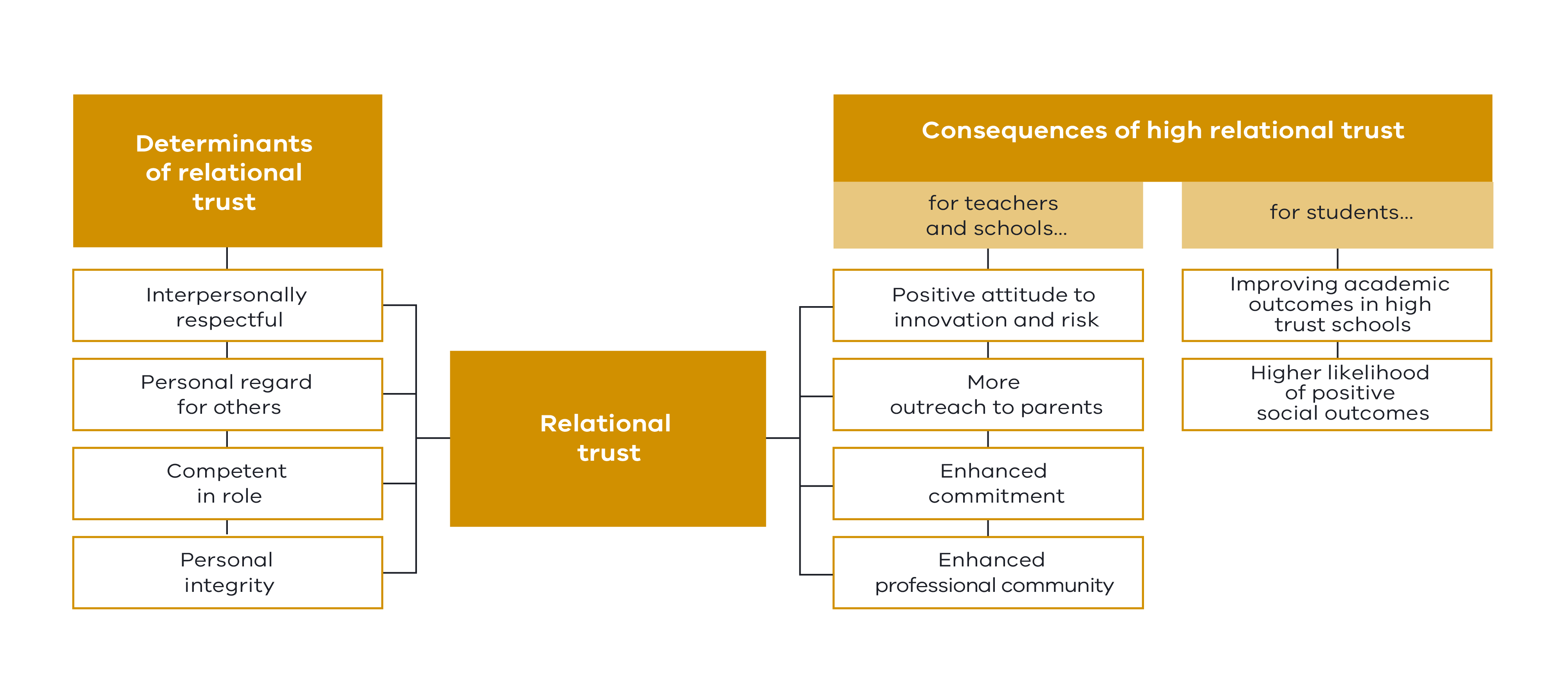Academy Leadership Excellence Framework
Capabilities
The three capabilities of educational leadership
The Academy Leadership Excellence Framework (ALEF) is a cornerstone for professional growth, identifying three core leadership capabilities essential for excellence as shown in the ALEF model:
- Using relevant knowledge
- Solving complex problems
- Building relational trust
This page provides an in-depth guide to these capabilities, offering resources and reflection questions to support Victorian school leaders in their journey toward improvement.
What is a leadership capability?
A capability describes the knowledge and skills that empower educational leaders to take effective action and make sound decisions. According to the ALEF, educational leaders demonstrate excellence when they:
- Use relevant knowledge to solve problems of teaching and learning.
- Solve complex problems with a clear and effective process.
- Build relational trust with their colleagues and community.
Explore the three core capabilities
Dive into each of the three key capabilities with expert insights and reflective questions.
1. Using relevant knowledge
Effective leaders stay informed by drawing on a broad knowledge base.
Video resources: Watch and download the video transcript the video below to learn more about the three capabilities and listen to Distinguished Professor Viviane Robinson explain their synergy.
Reflection questions:
- How do you stay current with educational research and professional reading?
- How do you ensure your staff has access to the knowledge they need to lead effectively?
- How do you support leaders in your school to have the relevant subject and pedagogical knowledge?
2. Solving complex problems
Complex problems are those that require new thinking and can't be solved with existing routines.
Consider the five-stage model for complex problem-solving. How does it compare to your current school improvement cycle, such as the FISO improvement cycle?
Reflection questions:
- How do you identify underperforming practices and gain consensus for change?
- How thoroughly do you inquire into the root causes of problems before seeking solutions?
- How do you ensure a shared understanding of a good solution before implementation?
3. Building relational trust
Relational trust is the willingness to be vulnerable, built on respect, personal regard, integrity, and competence.
Reflect on the Model of Relational Trust based on the work of Bryk & Schneider (2002).
Reflection questions:
- What deliberate actions do you take to demonstrate respect, integrity, and personal regard?
- How do you respond to differing opinions and welcome feedback from your staff?
- Reflect on people you trust and don't trust. What can you learn from this to improve your own trustworthiness?
Resources and next steps
- Access downloadable resources on each of the three capabilities
- ALEF Home: Explore the full Academy Leadership Excellence Framework, including sections on Dispositions and Domains











